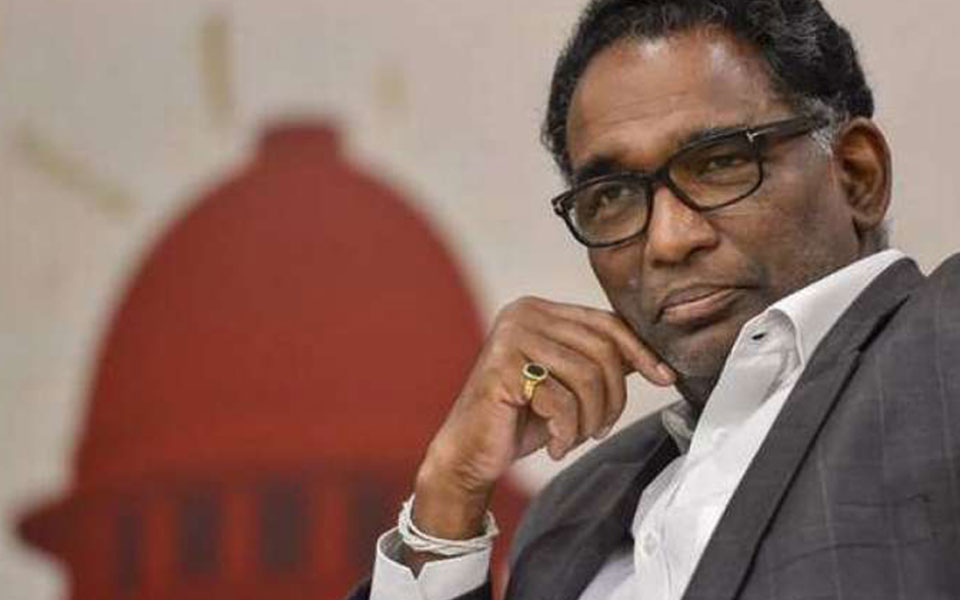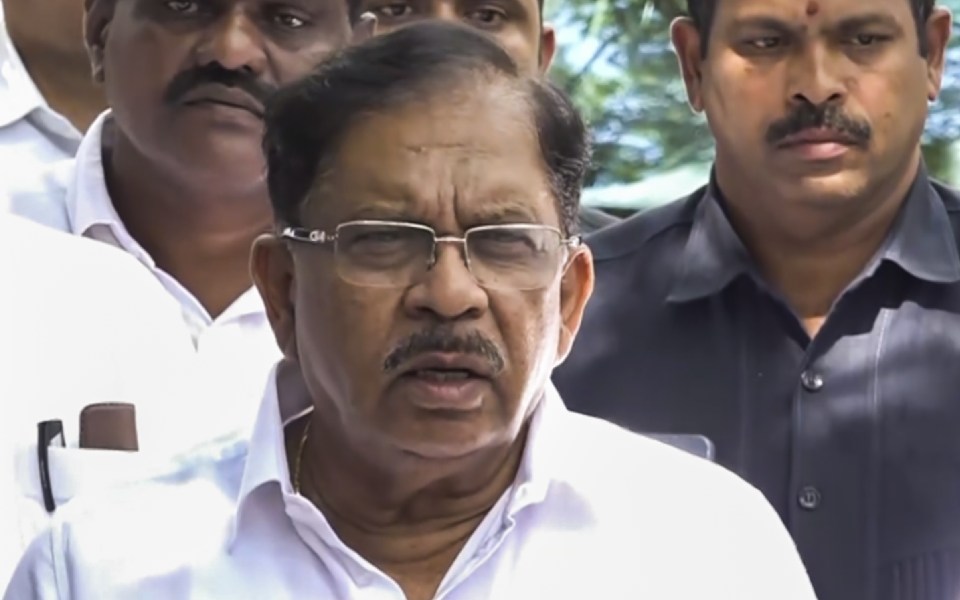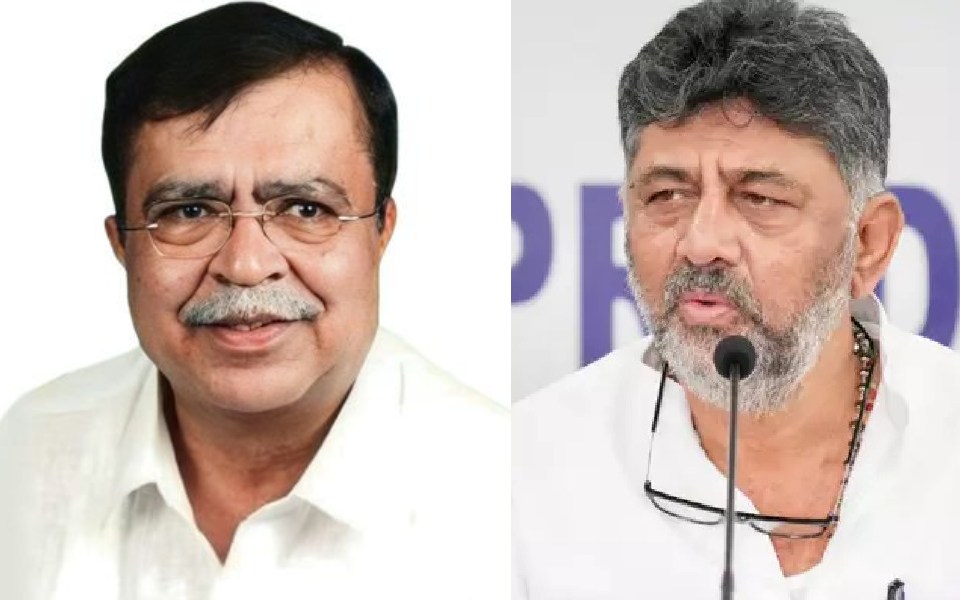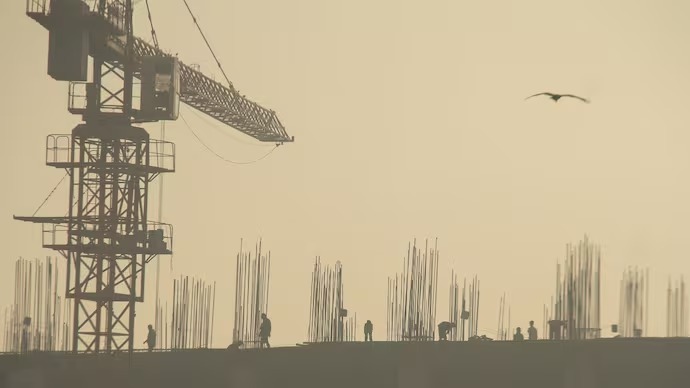New Delhi, May 18: Supreme Court judge Justice Jasti Chelameswar, who is retiring on Friday, shared a bench with Chief Justice Dipak Misra on his last working day and lawyers praised him saying he did a "great job in upholding democracy".
As the bench was about to rise for the day, Justice Chelameswar won the praise of lawyers. Senior advocate Rajiv Dutta thanked him saying he "upheld the ideals of democracy" during his stint as judge in the apex court.
Advocate Prashant Bhushan also thanked Justice Chelameswar for his service in judiciary saying he "did a great job in upholding democracy". "The Bar will always remember him," he added.
Advocate Gopal Shankar Narayan thanked Justice Chelameswar for his grace, particularly towards junior members of the bar and said junior lawyers will always remember him, as Justice Chelameswar rose for the day, folded both his hands and said: "It's my only response".
It is a custom and practice of the Supreme Court that on his last working day, a retiring judge shares bench with the Chief Justice in Courtroom number one.
The bench comprising Chief Justice Misra, Justice Chelameswar and Justice D.Y. Chandrachud on Friday sat for approximately 15 minutes, as only 11 matters were listed before the bench and out of which 10 were transfer petitions related to matrimonial disputes.
During the course of the hearing of cases, the court was full with lawyers, but Supreme Court Bar Association (SCBA) President, Vice President were not present there.
Justice Chelameswar had turned down the SCBA's request to participate in a farewell function it wanted to arrange for him, saying he wanted his retirement to be a "private affair".
The 65-year-old judge -- is one of the four top court judges who held the unprecedented press conference in January saying "all was not well" on the administrative side of the Supreme Court.
Justice Chelameswar will retire on June 22 but his last working day was on Friday, since the court goes on summer vacation after that.
On Thursday, on the eve of his last working day as Justice Chelameswar was sitting in courtroom No 2, senior advocate and former Union Law Minister Shanti Bhushan and senior advocate Dushyant Dave praised his "courage, judicial approach and uprightness".
Let the Truth be known. If you read VB and like VB, please be a VB Supporter and Help us deliver the Truth to one and all.
Bengaluru, Jan 10: Karnataka Home Minister G Parameshwara on Friday said that six surrendered Maoists have not handed over their weapons, and the police are working to locate and recover them from the forest where they are believed to have been disposed of.
Noting that one Maoist, expelled from the surrendered group, is still at large and efforts are underway to trace him, he said there is no one else involved in Naxal activities in the state. He added that any individuals coming from other states will be closely monitored.
A group of six Maoists surrendered to the government in the presence of Chief Minister Siddaramaiah at his home office, ‘Krishna,’ on Wednesday evening.
The group includes four individuals from Karnataka: Mundagaru Latha from Sringeri, Vanajakshi Balehole from Kalasa, Sundari Kutluru from Dakshina Kannada, and Mareppa Aroli from Raichur. The other two are Vasantha K from Vellore in Tamil Nadu and N Jeesha from Wayanad in Kerala.
"We need to search for the weapons. It is not yet known where they were disposed of in the forest, but efforts are underway in that direction," Parameshwara told reporters in response to a question.
Addressing the BJP's allegation that the government prioritised rehabilitation for Maoists over recovering their weapons, he said, "They keep making such claims. The government will do its job. We may need to gather information from the Maoists about where the weapons were hidden and seek their assistance. There are procedures, and they will be followed."
The BJP has also been in government, and they are aware of this. It was the same police department during their tenure, he added.
The six surrendered Maoists will be rehabilitated under categories 'A' and 'B' of the Naxal Surrender Policy, Karnataka 2024, and will each receive Rs 3 lakh.
In response to a question about reports that another Maoist, Ravindra, is still at large, the Home Minister said, "According to the information we have, this group had expelled him, but the reasons are not yet known. Efforts are underway to trace him, and he is believed to be in the Chikkamagaluru region."
Regarding the surrendered Maoists, the Home Minister stated that they were the last active Maoists in the state.
He added, "If anyone comes from other states, it will be closely monitored. There is a possibility of individuals coming from Odisha or Kerala, and we will remain vigilant. The government is making efforts to discourage Naxalism. According to our information, no one else is currently involved in such activities in the state."
The surrender followed the killing of Maoist leader Vikram Gowda in an encounter with the Anti-Naxal Force at Peetabailu village in Hebri, Udupi district, on November 18, 2024.
When asked about Vikram Gowda's family seeking compensation in light of the package being provided to surrendered Maoists, Parameshwara said, "It will be verified. Both cases are different."





